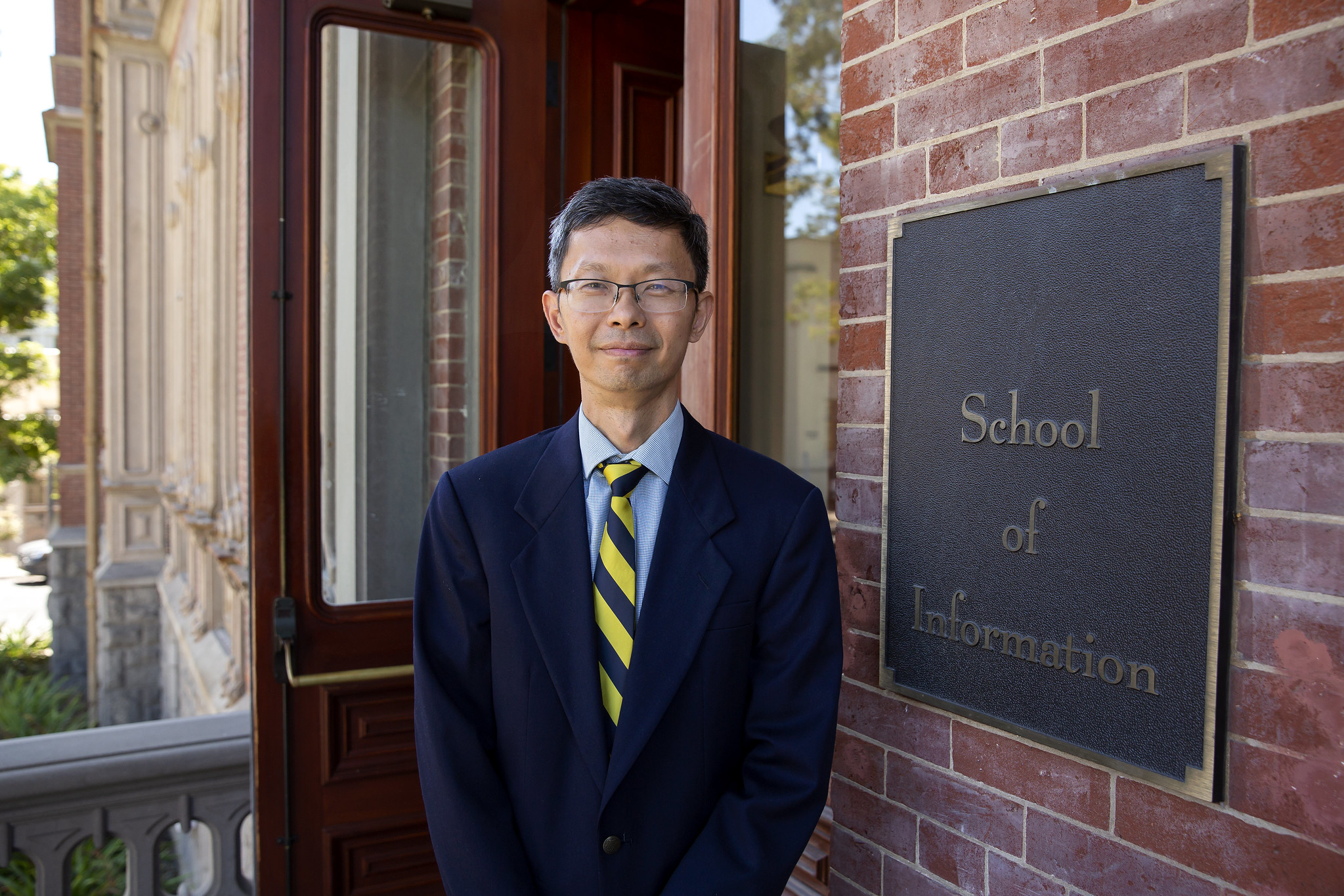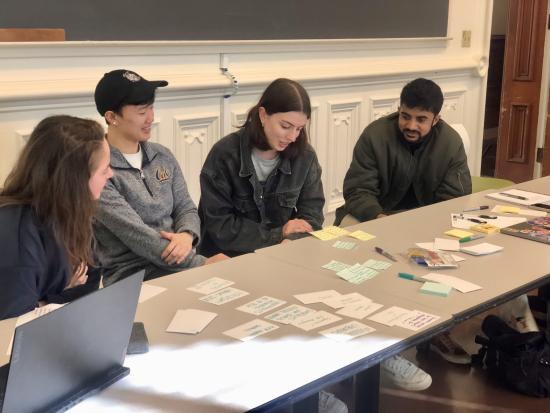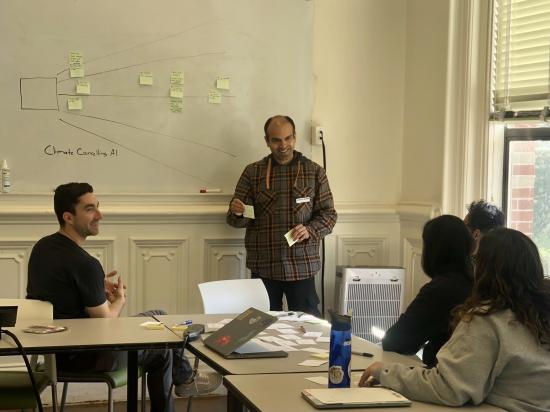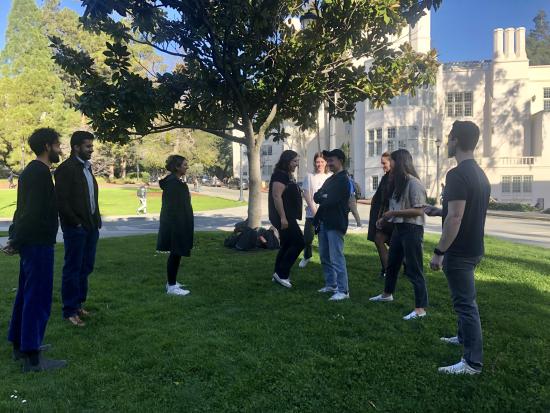Four years ago Catherine Cronquist Browning, Assistant Dean of Academic Programs and of Equity and Inclusion at the UC Berkeley School of Information, advocated for the importance of data science in the fight for climate justice. “Information professionals must come to understand themselves as particularly well-equipped to support and engage with climate scientists, researchers, and advocates,” she argued.
Today, a class exists to do just that — educate aspiring information professionals on how they can leverage their skill sets to contribute to current efforts in mitigating and adapting to the effects of climate change. Led by Professor John Chuang, Info 290: Climate, People, and Informatics seeks to explore the burgeoning field of climate informatics and equip students with the necessary language and contextual knowledge to contribute.
But it wasn’t always this way. The first inklings of this class began in 2021 when Professor Chuang decided it was time to research something new. He spent the past 20 years — almost the entirety of his career at the I School — studying the economics of networks and biosensory computing. Eventually, he began to ask himself, “What do I want to do for the next 10 years?” He found that the answer was clear: “What I want to do for the next 10 years,” he said, “is look at climate change.”
Fast forward two years, and the class officially opened for registration in the Spring of 2023 after a brief trial run as a reading group. Twelve students enrolled and Professor Chuang began putting together extensive reading material to discuss in class. From current machine learning climate mitigation efforts, to systems thinking, to human-computer interaction, and design for sustainability, the course material aims to engage students of all backgrounds by showing what each individual can do for sustainability.
“The reading list is very diverse,” first-year MIMS student Erin Jones shared, “ranging from sustainable computing to information technology’s role in conservation and biodiversity…The most engaging aspect is learning from different individuals in the course who are passionate about different areas of the field.”
Chris Ferenci, a second-year student enrolled in the class, added, “Professor John Chuang’s climate informatics class reignited my passion for environmental science and climate technology, and it cemented in me the desire to pursue a career tackling real-world environmental challenges. This class gave me the knowledge, tools, and confidence to leverage my technical skill sets towards climate challenges.”

Both Ferenci and Jones have since accepted opportunities to further their climate interests. During the summer, Jones will be interning with the data science team at SPAN.io, a start-up focused on grid transformation. Ferenci, on the other hand, will begin working at Deloitte as a senior solutions consultant post-graduation, where he will be working with the State of California to modernize water rights management processes and systems.
“It’s long past due,” Professor Chuang stated, “This class should have been taught starting ten years ago…I hope that as this class gets more visible, prospective applicants will say ‘Wow, I’m so glad that the Berkeley I School is offering a class on climate and informatics and it gives me a reason to apply to this program.’”
“The I School is the only place on campus where [the course] can be taught the way it is,” he continued, “And, there are opportunities to contribute everywhere you look.”












